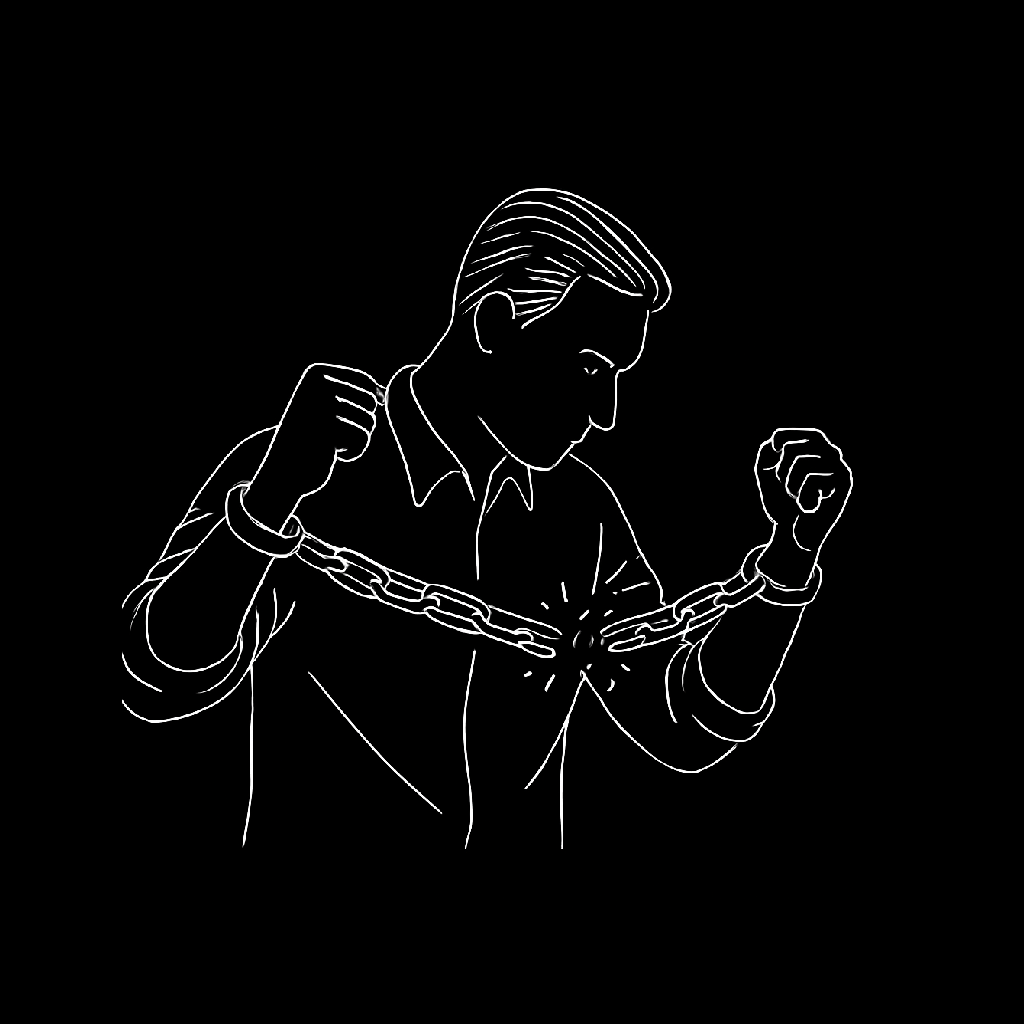Not A Subscriber?
Join a global group of ambitious readers on their quest to understand themselves, life, and business
You're not ready and never will be
The truth about why you feel stuck (and how to get unstuck)
One of the most common and least talked about human experiences is being stuck in life. You have a nagging sense that there’s a decision you should make or a path you should pursue, yet you keep postponing it because facing it feels hard.
Being stuck can be frustrating, and at times almost unbearable, because human beings are wired for equilibrium and clarity.
You feel pulled in many different directions and your thoughts start to overwhelm you.
Interestingly, the reasons for stuckness (is that even a word?) are surprisingly universal. Stuckness is often a fear in disguise. And persistent stuckness is often a sign you’re avoiding growth.
Once you recognise what's holding you back it no longer has the same power over you, and you can start addressing the root cause and get unstuck.
Here are six of the most common ones.
1. "I’m not ready"
“I’m not ready” sounds rational. Even prudent.
You tell yourself that you need more skills, more time, more money, and more experience before starting.
You tell yourself that readiness is something that will arrive one day, and THEN you'll take action.
But life doesn't work that way.
Readiness is rarely a condition that arrives before you start. It’s built in the process of starting. Think of your first job, your first relationship, your first child. Did you feel ready? Probably not. You became ready by doing.
Readiness isn't achieved while waiting, it's built by doing.
"I'm not ready" is perhaps the most seductive and dangerous of all self-talk statements.
Most of the time, “not ready” is code for “not willing to tolerate the discomfort of beginning.” The feeling (and story you tell yourself) of not being ready is usually fear disguised as logic.
The antidote: start before you feel ready. History is full of entrepreneurs, artists, and leaders who began with uncertain first steps. They grew their capacity along the way.
Action precedes familiarity and comfort.
You will never be fully ready, so take action anyway and grow into the person who is.
2. "What if I fail?"
Moving forwards despite not feeling "ready" means taking action.
Taking action means trying new things out.
Trying new things out means making mistakes.
And if you expect perfection from yourself, then making mistakes terrifies you.
"What if I fail" is a fear that can paralyse you because you can't bear the thought of yourself trying something and falling short. You feel like you're letting yourself down and letting others down as well.
You want to be certain that you'll succeed before making the leap.
But searching for certainty when there is none will keep you trapped.
Nobody's life is a straight line of continuous forward motion. Making and learning from mistakes are invaluable parts of helping you grow into a more complete version of yourself.
To get out of this belief, you need to shift the definition of a mistake.
What if mistakes weren’t catastrophes but data points? Each wrong turn is a narrowing of the field, teaching you what doesn’t work, refining your intuition. In science, this is called experimentation. In life, it’s called growth.
Reframe "mistakes" from inconvenient bumps along the way to the very things that are needed on your path to succeed in the long term.
3. "What will others think of me?"
Fear of judgment keeps you playing small, avoiding anything that will make you stick out or ruffle feathers.
First of all, other people are far less focused on you than you imagine. They’re absorbed in their own self-image and insecurities.
And second of all, if other people do choose to judge you - well, their judgements are not universal truths, they are just projections of their own fears and worldview onto you. Their opinion says more about them than it does about you.
Those judgments only becomes a prison if you accept them as reality and start living inside the limits they’ve drawn. The choice is yours.
So the question is, if nobody were watching, what would you choose?
Reflecting on this question often reveals the deeper truth that you know is right but fear stepping into.
4. "I don’t actually know what I want"
Sometimes you can genuinely be stuck because you have many options and it's overwhelming to have to choose. You feel like all options are good, or that no options are good. In either case, you don't have clarity about your next steps.
This is especially common in times of transition.
Not knowing what you want to do is not necessarily a bad thing. In fact allowing yourself to not know is often healthy, for a while. But when being stuck starts stressing you out and causing internal friction, it becomes a problem.
In this case, you start feeling friction because you feel like you "should" know and you're frustrated that you can't figure it out.
You may fear that you'll make the wrong choice and are therefore frozen.
Often, you avoid the question and procrastinate, because you don't like the feeling of not knowing what to do.
But not knowing what you want is not a permanent state.
It’s a signal you haven’t yet devoted focused energy to discovering it.
You've pushed the question aside instead of making it a priority to find out.
Clarity doesn't just appear; it's generated through deliberate exploration.
In practice, this means making exploration a practice. Journal. Talk to people who are doing what you think you might like to do. Run small experiments, for example by trying out a new path with a minimal commitment for a week or two.
Avoid making the choice too big or life-changing, but instead explore it bit by bit.
Get data on what excites you and what drains you. Learn along the way.
When you give the question real focus, answers begin to appear.
You’re not stuck because you lack options, you’re stuck because you haven’t chosen to explore one more deeply.
5. The myth of the perfect choice
At the root of many stuck lives lies a fantasy: that somewhere out there is the flawless option. The perfect partner. The dream job. The ideal city. The perfect life.
You believe that there is one decision that will make everything fall into place. You compare every possibility to an imagined ideal, and nothing qualifies. So you choose nothing.
But no such perfection exists. Every life choice carries trade-offs, risks, and unknowns. You'll never know ahead of time whether a life choice is right or wrong.
Waiting for the ideal path will keep you waiting forever.
To move forwards, you need to drop the illusion of perfection.
Focus instead on making choices and then shaping them into meaning.
Satisfaction comes less from choosing perfectly than from committing fully, and being content with what is.
6. Waiting for motivation
One of the biggest myths is that action depends on motivation. That you must feel inspired before you start.
In reality, motivation often follows action, not the other way around.
When you’re stuck, inertia is the enemy. You're stuck, so you don't move, which causes you to stay stuck. It's a vicious cycle.
The cure is movement. Break down steps into the tiniest possible units, for example to send one email, write one page, or to research one idea that you have in more depth. Focus on what you can control (namely, the process and the action you take), rather than waiting for things to happen for you.
Once you begin, momentum builds.

How to get unstuck
We’ve all had periods of our lives that were frustrating and confusing.
What differentiates people who end up creating businesses, creating enduring relationships, and creating the life they want is what they do in these situations.
Stuckness can feel stressful, but it’s also an invitation. It forces you to slow down and ask questions you might otherwise ignore. What do I really want? What am I afraid of? What really makes me happy?
Seen this way, stuckness is a valuable part of your growth journey as a human being. It’s life telling you something in your current way of being is no longer sufficient, and that something else is being asked of you.
The way out isn’t to wait passively for clarity to arrive. It’s to engage actively with the forces keeping you still. You need to look into your deeper needs and fears that you carry, such as the fear of not being ready, the fear of disappointing others, the fear of making a mistake, and the desire for perfection.
Only by naming and engaging with these inner drivers can you uncover what's getting in the way.
The way forward is then to embrace the discomfort as the very terrain where your next self is waiting to emerge.

About the author Nicolai Nielsen
I am the bestselling author of 3 books, former McKinsey Academy Associate Partner, and the founder of Potential Academy.
My mission is to raise global consciousness through education and inspiration.




